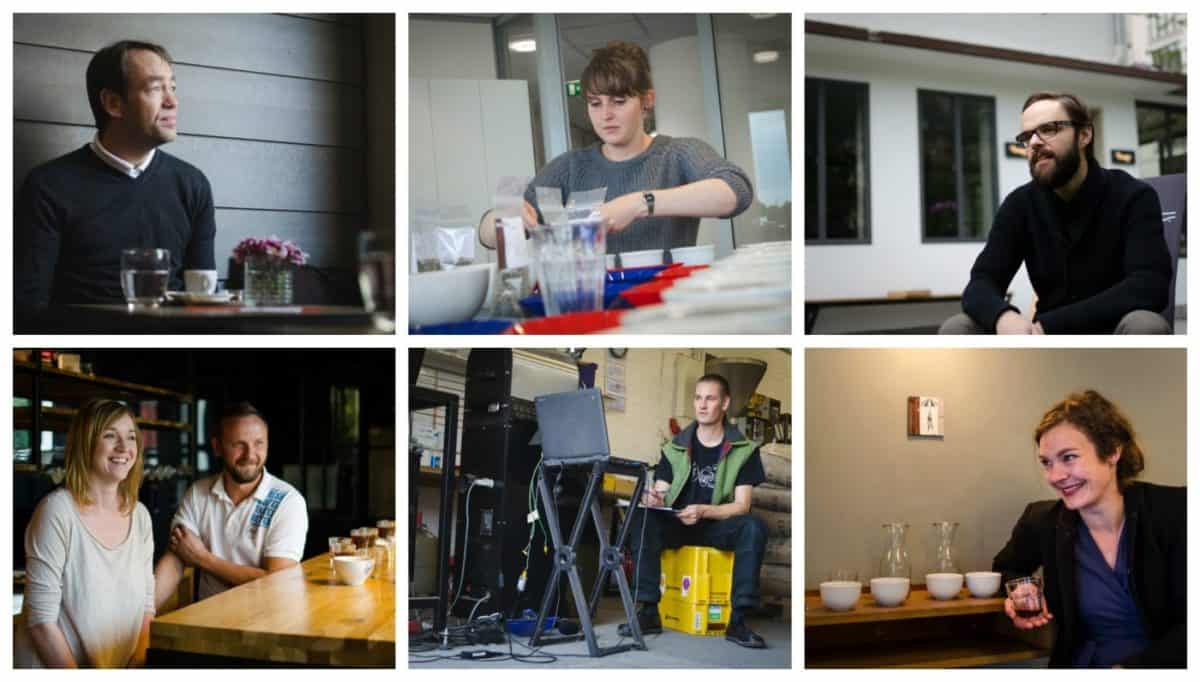Few baristas in the World have competed across as many coffee categories as Alexander Reyes Monsen. From latte art throwdowns to Brewers Cup finals, he has tested himself in nearly every barista discipline since 2013. The results speak for themselves: three consecutive Norwegian Barista Champion titles, a Coffee in Good Spirits Champion title, and multiple podium finishes across disciplines.
Today, Alexander works as Barista Standards Coordinator at Kaffebrenneriet HQ in Oslo, where he combines training, technical work, and brewing development with the same curiosity that first drew him into coffee. For him, competitions and daily café service share the same goal: finding better ways to connect people with the cup in front of them.
Whether on stage or behind the bar, Alexander is known for his mix of precision and openness. He thrives on guiding younger baristas, asking curious questions about flavour, and showing that coffee is as much about people as it is about technique. His story is one of persistence, experimentation, and a constant drive to push Norway’s coffee culture forward.
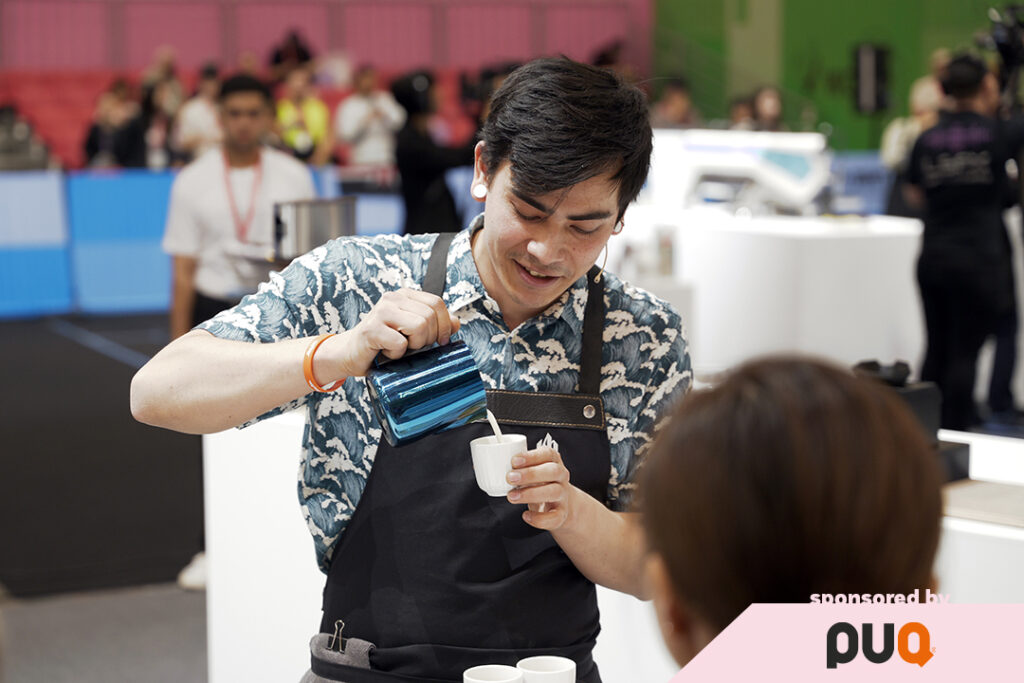
Alexander, what is your first memory with coffee?
I have many early memories, but my favourite is a funny one. When I was about 14–15 years old, my dad and I used to drink instant coffee overloaded with creamer and sugar.
One day, I went to make a cup and accidentally did a cupping-style brew. I found regular ground coffee in the cupboard, thought it was instant, scooped a few spoons into the cup, poured hot water, let it sit, then stirred – without breaking and removing the crust. When I took a sip, I realised how sweet and complex coffee could be. From that day, I’ve never added anything to my coffee.
What inspired you to pursue a career in the coffee industry, and how did you get started? What did you do before coffee?
After school, I spent time at a youth café club in downtown Oslo, where I started working to gain experience. I also enjoyed chemistry and math, and I realised how much chemistry is involved in brewing. I took a gap year before university to decide on my studies and worked in a coffee shop. During that year, I entered my first barista competition and learned a huge amount.
Since then, I’ve focused on brewing, workflow, and serving the right cup to the right person – while sharing the stories of all the hands that shape the coffee we drink. What keeps me going is the coffee community: amazing people, talented baristas, and the chance to guide newcomers into our world.
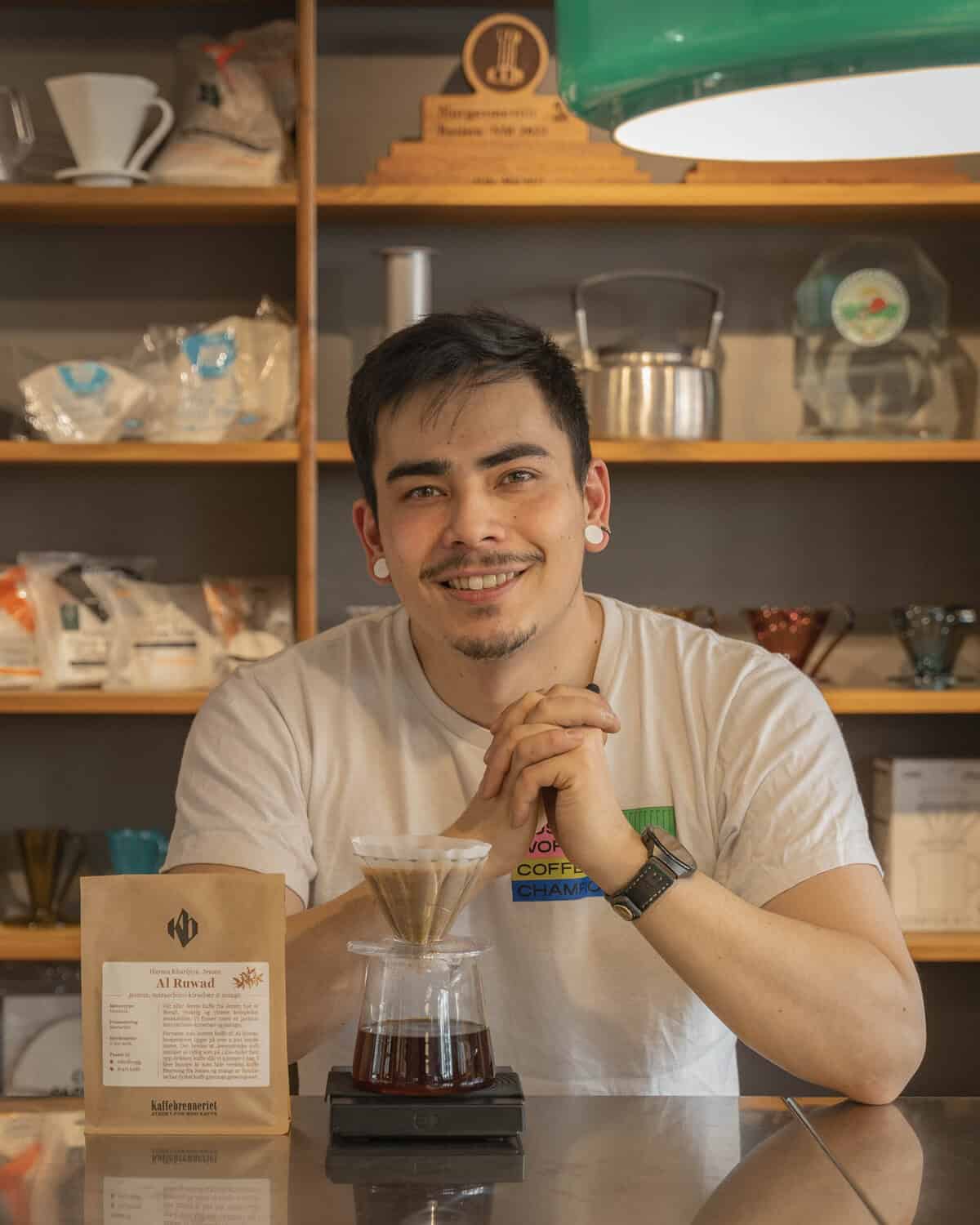
Tell us a bit about the place you work at. What is your role there?
Kaffebrenneriet is a Norwegian company led by founders Thomas and Stainar, with 47 shops, a roastery, and a bakery. Our goal is to serve the right cup for the right person – whether that’s an everyday coffee drinker or a connoisseur. One thing that’s clear working with our baristas: a happy barista makes great coffee. One of our visions is “best på kaffe” (best at coffee) – a constantly challenging, never-ending task. That’s why you’ll find a full range of specialty coffees and great products in our shops, supported by strong training and education.
Kaffebrenneriet is also down-to-earth, local, and homely – easy to drop by – so both experienced and new coffee drinkers can enjoy their regular favourites or explore new profiles, including Cup of Excellence lots.
My role is Fagansvarlig barista (Barista Standards Coordinator). I help maintain our machine park, guide training and education, and – my favourite part – develop techniques, presentations, and brewing methods. Coffee never stands still; staying updated and sharing that is a big part of my job.
What kind of experience do you want your customers to have when they try your coffee?
Two things. First, a moment of peace. Life is busy; I want guests to pause and simply enjoy taste, calm atmosphere, and something good. Second, a learning experience. I love serving two coffees side by side so we can compare and discuss differences in aroma, flavour, and mouthfeel. Those conversations can be eye-opening – for how we taste, brew, and understand preferences.
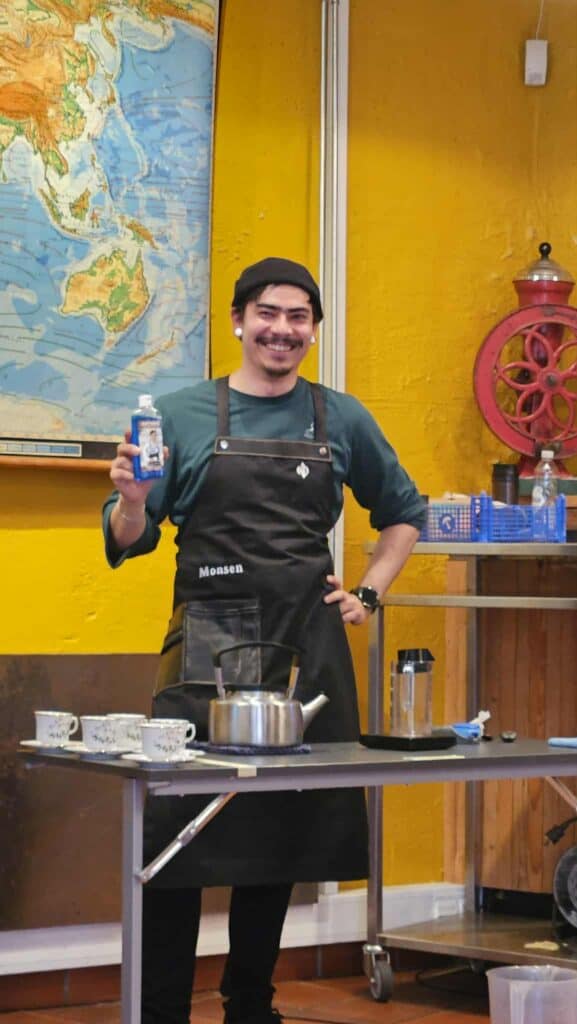
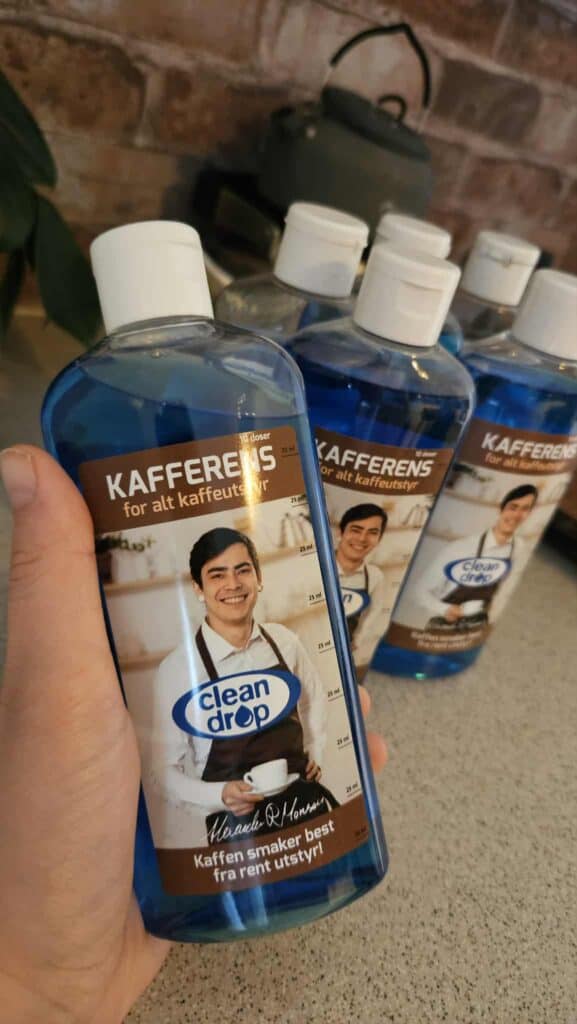
What is your favourite part of the day at work, and why?
Being out in the shops with an apron on, alongside curious baristas who ask fun, challenging questions. It’s a golden opportunity to guide, share experiences, and help them grow.
How do you stay motivated and inspired to keep improving your coffee-making skills?
When I share knowledge and see a barista the next day with that proud smirk of mastery – that’s my gold. Seeing the people I work with happy and progressing is incredibly motivating, especially when I’ve contributed to it.
What are some common misconceptions about our industry that you’ve encountered, and how do you address them?
A big one is equating roast level with flavour in a simple way – “dark equals bitter” and “light equals sour”. Today’s roasting standards are high, and roast level doesn’t automatically define the cup that way. With guests, I shift to more specific vocabulary: for darker profiles, words like round, intense, deep, cacao, or pleasantly bitter; for lighter profiles, gentle, fruity, bright, juicy, or light-bodied – whatever matches what they’re actually tasting.
With baristas, I challenge their associations: “When you say this Brazil is dark, do you mean bitter-forward, cacao-like, heavy mouthfeel, or brown-sugar sweetness?” “When you say this Kenya is light, is it rhubarb, limey acidity, or a juicier mouthfeel?” It’s fun to point out when, for example, Agtron colour shows that Kenyan coffee is technically a darker roast than the Brazilian, while our associations say otherwise. My goal is to make this a normal, positive learning moment, never discouraging.
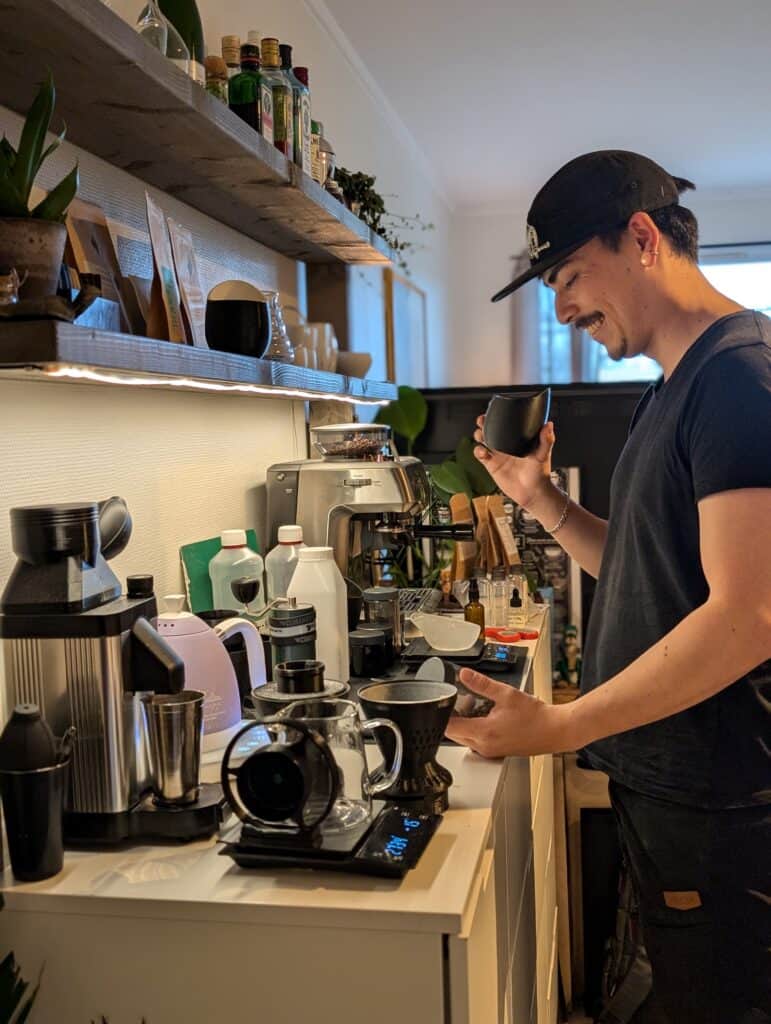
What are the current café trends in your region? Are there any you promote and want to see more often?
In Oslo, anaerobic and other complex processing methods are appearing more and more – a trend I really enjoy. They broaden the perspective for both baristas and guests, showing that coffee is a continuously evolving product.
You have some absolutely amazing achievements in championships. Can you tell us more about them?
My first competitions taught me a lot and gave me a strong feeling of mastery, so preparation and research became a second hobby. I was driven by “How can I serve the best cups?” I also wanted to win – but the harder I tried, the harder it felt. In 2019, I changed my approach to “How can I serve the best coffee while having fun?” When I found something I genuinely wanted to talk about, everything clicked. I realised coffee is about people’s experiences and the stories we share – from the seed to the final cup. There’s always more to learn: new people with different preferences, new coffees, new ideas and techniques. The fun became choosing the right idea to bring to the stage.
How did it feel to compete on the World Stages, and what were the differences between the championships?
The World Stages were always amazing! In Melbourne, Australia, my mindset was to learn and be part of the community – I knew I probably wouldn’t win, and I met so many inspiring people I still look up to.
In Athens, Greece, I had higher hopes and some fear about competing at that level. Afterwards, realising I’d made a simple mistake that might have pushed me further, I still felt satisfied with my skill. The judges’ feedback and reconnecting with friends made all the preparation worthwhile.
In Busan, Korea, I travelled with my colleague and current Norwegian Barista Champion, Erlend. It was all about fun again – more prepared and more confident than ever. Being recognised by other competitors as someone to watch was special, even though I made a similar mistake on stage.
Across these years, I’ve become content with the journey: we all want, we all try, and sometimes we fail – and that’s where success begins. Learning, cheering for friends who do better, and contributing to a community that pushes coffee forward – that’s a win in itself. Maybe I’ll win the title one day; in hindsight, I’ve already won personal victories each time.
What are the next championships you’d like to compete in?
After a year’s break, I’m back to the Barista Championship, this time with a team of first- and second-time competitors from Kaffebrenneriet.
In your opinion, what’s the most important thing to keep in mind when you start competing in coffee championships?
Mindset. Don’t let setbacks break you. I tell first-time competitors they’re unlikely to win right away – and that’s okay. Focus on learning: build consistency in brewing, seek clear feedback, practice under pressure, refine time management and sensory notes, and have fun sharing a story you truly care about. If you do that, the results and rankings tend to follow.

Quick Fire Questions for Alexander Reyes Monsen:
Filter coffee or espresso-based?
Espresso-based.
Milk coffee or black coffee?
Black.
The most underrated coffee drink?
Espresso.
The most underrated coffee brewer?
Kokekaffe (Steep kettle).
Hobby besides coffee?
3D printing and climbing.
How do you make coffee at home?
I experiment a lot; there is never one set way.
No.1 café in Europe that every coffee geek should visit?
Papegøye, Oslo.
Favourite city outside your own for a coffee tour?
In Norway, it would be Trondheim, and outside, I would say Melbourne.
